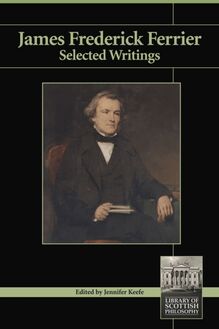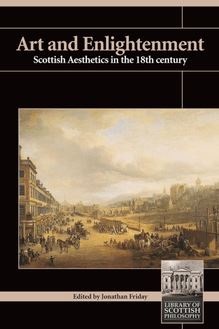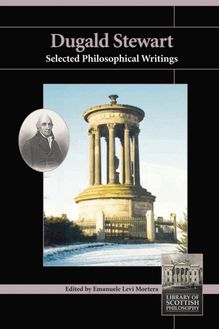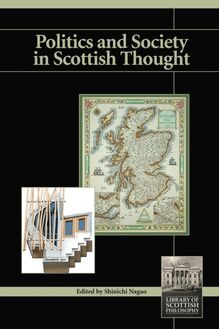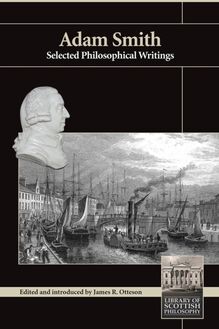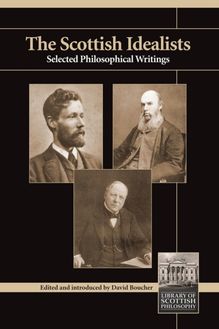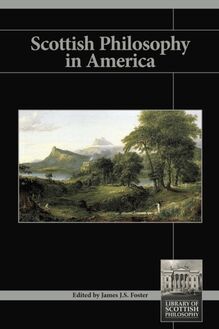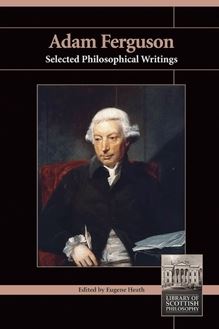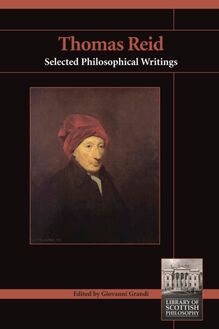-
 Univers
Univers
-
 Ebooks
Ebooks
-
 Livres audio
Livres audio
-
 Presse
Presse
-
 Podcasts
Podcasts
-
 BD
BD
-
 Documents
Documents
-
- Cours
- Révisions
- Ressources pédagogiques
- Sciences de l’éducation
- Manuels scolaires
- Langues
- Travaux de classe
- Annales de BEP
- Etudes supérieures
- Maternelle et primaire
- Fiches de lecture
- Orientation scolaire
- Méthodologie
- Corrigés de devoir
- Annales d’examens et concours
- Annales du bac
- Annales du brevet
- Rapports de stage
La lecture à portée de main
Vous pourrez modifier la taille du texte de cet ouvrage
Découvre YouScribe en t'inscrivant gratuitement
Je m'inscrisDécouvre YouScribe en t'inscrivant gratuitement
Je m'inscrisEn savoir plus
Vous pourrez modifier la taille du texte de cet ouvrage
En savoir plus

Description
Sujets
Informations
| Publié par | Andrews UK |
| Date de parution | 03 octobre 2012 |
| Nombre de lectures | 0 |
| EAN13 | 9781845404468 |
| Langue | English |
Informations légales : prix de location à la page 0,0550€. Cette information est donnée uniquement à titre indicatif conformément à la législation en vigueur.
Extrait
Title page
James Beattie
Selected Philosophical Writings
Edited and Introduced by James A. Harris
Copyright page
Copyright © James A. Harris, 2004
The moral rights of the author have been asserted.
No part of any contribution may be reproduced in any form without permission, except for the quotation of brief passages in criticism and discussion.
Originally published in the UK by Imprint Academic
PO Box 200, Exeter EX5 5YX, UK
Originally published in the USA by Imprint Academic
Philosophy Documentation Center
PO Box 7147, Charlottesville, VA 22906-7147, USA
2012 digital version by Andrews UK Limited
www.andrewsuk.com
Series Editor’s Note
The principal purpose of volumes in this series is not to provide scholars with accurate editions, but to make the writings of Scottish philosophers accessible to a new generation of modern readers. In accordance with this purpose, certain changes have been made to the original texts: Spelling and punctuation have been modernized. In some cases, the selected passages have been given new titles. Some original footnotes and references have not been included. Some extracts have been shortened from their original length. Quotations from Greek have been transliterated, and passages in foreign languages translated, or omitted altogether.
Care has been taken to ensure that in no instance do these amendments truncate the argument or alter the meaning intended by the original author. For readers who want to consult the original texts, full bibliographical details are provided for each extract.
The Library of Scottish Philosophy was launched at the Third International Reid Symposium on Scottish Philosophy in July 2004 with an initial six volumes. Attractively produced and competitively priced, these appeared just fifteen months after the original suggestion of such a series. This remarkable achievement owes a great deal to the work and commitment of the editors of the individual volumes, but it was only possible because of the energy and enthusiasm of the publisher, Keith Sutherland and the outstanding work of Jon M.H Cameron, Editorial and Administrative Assistant to the Centre for the Study of Scottish Philosophy.
Acknowledgements
Grateful acknowledgement is made to the Carnegie Trust for the Universities of Scotland for generous financial support for the Library of Scottish Philosophy in general, and to George Stevenson for a subvention for this volume in particular.
Acknowledgement is also made to the University of Aberdeen Special Libraries and Collections for permission to reproduce the engraving of the Edinburgh Faculty of Advocates from Modern Athens (1829) and Raeburn’s portrait of Beattie which hangs in the University’s Chanonry Lodge.
Gordon Graham
Aberdeen, June 2004
Introduction
James Beattie was born in Laurencekirk, Kincardineshire, on 25 October 1735. As was usual in eighteenth-century Scotland, he went to university very young, and began his studies at Marischal College, Aberdeen, when only fourteen years old. This was the start of a life-long association with Marischal, then a separate institution from King’s College. After five years as a schoolmaster in Fordoun, close to his native village, Beattie returned to Aberdeen in 1758 to teach in the city’s Grammar School. In 1760 Beattie was appointed professor of moral philosophy and logic at Marischal, a position he occupied for the rest of his career. Also in 1760 he published the first of several books of poetry, the most notable of which was The Minstrel (1771, 1774), often said to anticipate some of the doctrines of Wordsworthian Romanticism. In the early years of his professorship, Beattie relied heavily on the lecture notes of his predecessor Alexander Gerard, but as time passed he stamped his course with his own character, decreasing the amount of ‘pneumatology’, or philosophy of mind, and focusing instead upon rhetoric and belles lettres . Many of his philosophical writings began life as lectures given to his students. His greatest success as a philosopher was with An Essay on the Nature and Immutability of Truth , a spirited and sometimes abusive attack on modern scepticism in general, and on David Hume in particular. The Essay appeared in 1770, and was a literary sensation, winning for its author honorary degrees from King’s and Oxford, an audience with King George III, and a royal pension of £200 a year. ‘We all love Beattie’, said Dr Johnson in 1772. Beattie’s personal life was, by contrast, often very unhappy. His wife Mary was afflicted with insanity, forcing the couple eventually to live apart; and his eldest son, James Hay, having been appointed joint professor with his increasingly ill father in 1787, died three years later. Beattie himself died at Aberdeen on 18 August, 1803.
Sir William Forbes notes in his Life and Writings of James Beattie that ‘Dr. Beattie’s philosophical writings may be properly divided into two classes, Morality and Criticism’. [1] Accordingly, this selection from Beattie’s writings has two parts. As the reader will quickly perceive from Part One, moral philosophy is in the eighteenth century somewhat broader in scope than it is today. It was believed then that instruction in ethics needed to be preceded by a full analysis of the faculties of the human mind. Where ‘natural philosophy’ meant the study of nature, ‘moral philosophy’ meant the study of the mind in all its aspects, and so included study of such mental ‘powers’ as reason, judgment, memory, imagination, sympathy, and the five senses. In Beattie’s day, people were just beginning to use the term ‘psychology’ as another name for the ‘theoretical’ (as opposed to ‘practical’) part of moral philosophy. ‘Criticism’, too, tends to be more ambitious and wide-ranging than present-day study of literature, and, in fact, also frequently strays into psychological territory. The eighteenth-century critic was often concerned to understand the manner in which a work operates upon the mind, and distinguished between styles of writing, and their respective merits, by examining the effects they had upon the reader. ‘Criticism’ is thus not primarily the study of intrinsic features of literary forms, nor interpretation of works in terms of authorial intention or cultural and social background, but instead a branch of rhetoric. Moreover, in his concern for how a work engages with the imagination and sentiments of its reader, the eighteenth-century critic is very often interested in the moral (in the narrower, modern sense of the word) qualities of a piece of writing. It was agreed that the function of any art form was to give pleasure, but it mattered that a work give the right kind of pleasure, pleasure in the right kind of thing, to the right degree. The critic’s function was to ensure that his readers knew the right kind of pleasure when they felt it: it was, in other words, to cultivate good taste. A dedication to what we might call ‘improvement’ provides a means of linking Beattie’s exercises in criticism with his moral philosophy. For moral philosophy, too, is first and foremost a practical science according to Beattie. Theoretical ‘psychology’ is valuable only to the extent that it yields a better understanding of the grounds and rewards of virtue. Both as a teacher and a writer, inculcating correct sentiments and habits is always Beattie’s aim. He concluded his lecture course with a reminder to his students that ‘the ultimate End of Man is Action; and that all Science which does not serve to make Men wiser and better, More profitable to themselves, Friends, and Country, is not only useless but also pernicious’. [2] This Introduction will show how the present selection from Beattie’s writings on ‘morals’ and ‘criticism’ is lent unity by the importance Beattie attached to his role as educator and improver.
II
A central part of eighteenth-century Scottish intellectual life was the literary or philosophical club. It is difficult, in fact, to overemphasize the importance to the ‘Scottish Enlightenment’ of these informal, privately-organized, selective, and frequently short-lived societies, which met to discuss every kind of contemporary question, from the most abstract issues in Newtonian science to problems in agriculture and husbandry. In his first years as a professor in Aberdeen, Beattie was a member of the Aberdeen Philosophical Society, sometimes known as the ‘Wise Club’, founder members of which had included Thomas Reid, Professor of Moral Philosophy at Kings, George Campbell, Professor of Divinity at Marischal, and John Gregory, Professor of Medicine in the Old Town. [3] The Society concentrated its attention upon ‘philosophical’ subjects (thereby excluding questions in, for example, grammar, philology and history) and, especially, upon issues raised by the sceptical writings of Hume. In a famous letter of 1763, Reid, writing on behalf of the Society, tells Hume that if he is to ‘write no more in morals politicks or metaphysicks, I am affraid we shall be at a loss for Subjects’. [4] But where Reid and Campbell were able to discuss and dissect Hume’s arguments carefully and calmly, Beattie had a much more extreme and emotional reaction to Humean scepticism. He appears to have convinced himself that Hume was a threat to the order and happiness of society at large, and that his doctrines needed to be combated by something more forceful than either Reid’s Inquiry into the Human Mind on the Principles of Common Sense (1764) or Campbell’s Dissertation on Miracles (1762). As we have seen, Beattie’s first interest had been in poetry and criticism, and he was prepared to admit to having ‘neither head nor heart’ for the work involved in undoing the confusions and sophistries of the sceptic: ‘But when doctrines are p
-
 Univers
Univers
-
 Ebooks
Ebooks
-
 Livres audio
Livres audio
-
 Presse
Presse
-
 Podcasts
Podcasts
-
 BD
BD
-
 Documents
Documents
-
Jeunesse
-
Littérature
-
Ressources professionnelles
-
Santé et bien-être
-
Savoirs
-
Education
-
Loisirs et hobbies
-
Art, musique et cinéma
-
Actualité et débat de société
-
Jeunesse
-
Littérature
-
Ressources professionnelles
-
Santé et bien-être
-
Savoirs
-
Education
-
Loisirs et hobbies
-
Art, musique et cinéma
-
Actualité et débat de société
-
Actualités
-
Lifestyle
-
Presse jeunesse
-
Presse professionnelle
-
Pratique
-
Presse sportive
-
Presse internationale
-
Culture & Médias
-
Action et Aventures
-
Science-fiction et Fantasy
-
Société
-
Jeunesse
-
Littérature
-
Ressources professionnelles
-
Santé et bien-être
-
Savoirs
-
Education
-
Loisirs et hobbies
-
Art, musique et cinéma
-
Actualité et débat de société
- Cours
- Révisions
- Ressources pédagogiques
- Sciences de l’éducation
- Manuels scolaires
- Langues
- Travaux de classe
- Annales de BEP
- Etudes supérieures
- Maternelle et primaire
- Fiches de lecture
- Orientation scolaire
- Méthodologie
- Corrigés de devoir
- Annales d’examens et concours
- Annales du bac
- Annales du brevet
- Rapports de stage
